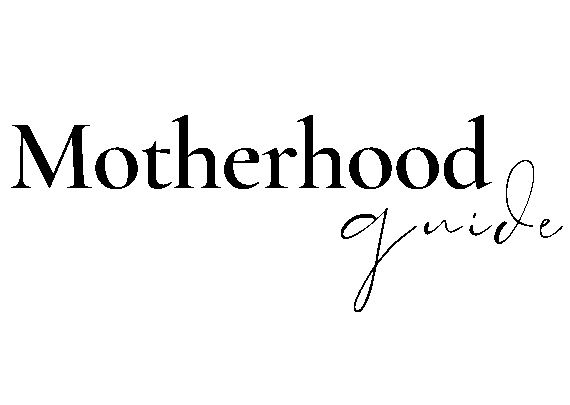Let’s admit the empty nest syndrome is a reality that many of us aren’t fully prepared for, despite the fact that we’ve been anticipating it for years. As someone who’s preparing to send my own daughter to study abroad in the Netherlands this year, I can feel the weight of this transition more deeply than I ever expected. It’s not simply the act of sending them off. It’s the profound shift in identity that occurs when our roles as mothers change.
The truth is, for many women, empty nest syndrome is not just an emotional adjustment, it’s a seismic life event. It’s the space between who you were and who you are about to become. It’s It’s the absence of our children’s physical presence. And that absence can leave us feeling lost, disoriented, and even profoundly sorrowful.
What is Empty Nest Syndrome?
Empty nest syndrome is not a clinical diagnosis, but a psychological phenomenon that refers to the feelings of sadness, loss, and emotional discomfort that parents, particularly mothers, experience when their children leave home. It’s a phase that many of us will inevitably face as our children grow older and begin to establish lives of their own.
According to recent studies, around 60% of mothers experience some degree of emotional distress during this transition. These feelings often arise because, for many years, the role of ‘mom’ has been intertwined with our sense of purpose. When the children leave, it can feel like a personal loss, a feeling of being unmoored.
The Emotional Landscape of an Empty Nest
You might feel relief and pride for your child’s independence, but underneath, there’s a deep sense of longing. There may be moments where you wander through the house, looking at the spaces that used to be filled with their presence. You may even catch yourself feeling like an outsider in your own home, uncertain of how to fill the silence. This sense of disorientation is a normal reaction, but what’s important to understand is that it’s temporary, and it can be navigated with self-awareness and preparation.
One of the most difficult aspects of empty nest syndrome is the emotional detachment from a child who has been so central to our identity for years. As mothers, we often lose sight of the fact that our children are separate individuals, each with their own path to follow. This shift in perspective can feel uncomfortable, but it is absolutely necessary for our own emotional well-being and for our children’s growth. For mothers experiencing empty nest syndrome, the key to success lies in redefining your purpose and learning to embrace this new phase as an opportunity for growth.
The Mother of an Adult: Shifting the Dynamic
Perhaps the most critical, and often overlooked, aspect of navigating empty nest syndrome is the understanding that we must evolve as mothers as well. The reality is that we’re no longer parenting children. We are, in fact, parents to adults. And this requires a fundamental shift in how we approach our relationships with our grown children.
For many of us, parenting has been deeply related with control: managing their schedules, enforcing rules, providing daily guidance. But as they leave home, the role of a mother must shift to one of support rather than active management. It’s no longer about providing for their every need but allowing them the space to make their own decisions, learn from their own mistakes, and grow into the people they’re meant to be.
“…we’re no longer parenting children. We are, in fact, parents to adults. And this requires a fundamental shift in how we approach our relationships.”.
– Zaneta
Investing time in learning how to be the mother of an adult child is just as important as any phase of parenting. The transition requires an understanding that your child’s autonomy is not a rejection of you, but a necessary step in their development. They need you in different ways now, sometimes simply as a sounding board, or as a guide who offers wisdom without the expectation of control.
This transition also calls for us, as mothers, to become more self-aware and open to change. We need to recognise that our children are no longer extensions of ourselves, they are separate entities with their own identities, goals, and paths. To hold on too tightly, to continue seeing them as the children we raised, is to hinder both their development and our own.
Tips For Moms to Ease the Empty Nest Syndrome
Allow Yourself to Feel
The emotional experience of an empty nest can’t be dismissed with the mere suggestion of ‘moving on.’ Allow yourself to grieve the loss of this chapter in your life. Recognise the feelings of sadness, frustration, or even anxiety, and give yourself the space to process them. As the great Maya Angelou once said: “There is no greater agony than bearing an untold story inside you.” In other words, it’s important to feel your emotions fully in order to heal.
Consciously Reframe Your Role
The first step in navigating the empty nest syndrome is to acknowledge the need of a shift in your role as a mother. You are no longer the central figure in your child’s day-to-day life, but that doesn’t diminish your importance. Instead, it signals an opportunity for you to redefine your own identity and your relationship. Begin by exploring your passions, interests, and goals that may have been sidelined during your years of parenting. It’s time to give yourself permission to focus on yourself again, without guilt.
Create New Routines
When the routine of daily life changes, there is a natural tendency to feel adrift. Establishing new routines can help anchor you during this time of transition. Whether it’s exploring a new hobby, pursuing a career goal, or simply spending more time with your partner, developing fresh rituals will help you regain a sense of control and purpose.
Cultivate Your Relationship with Your Partner
One of the unforeseen aspects of the empty nest is the renewed focus on your relationship with your partner. With your child no longer at home, you may find yourself rediscovering each other. This is a unique time to reconnect, engage in deeper conversations, and revisit the parts of your partnership that may have been neglected. Use this opportunity to nurture your relationship, recognising that it, too, requires care and attention.
Engage in Self-Care
The importance of self-care cannot be overstated during this transition. Take time to nourish your physical, mental, and emotional health. Exercise, meditate, journal, or indulge in creative pursuits, whatever makes you feel grounded. As the renowned psychologist Dr. Susan David advises, “Emotions are data, not directives.” Your feelings of sadness or loss are simply data points that can help you navigate this transition with intention.
Support Your Child’s Growth
Finally, remember that your child’s departure is not an abandonment; it’s a natural progression. Their departure signifies their growth and your success as a parent. While it’s important to allow them space to flourish, it’s equally important to recognise that you are still their foundation. Reframe your support as one of encouragement, rather than dependence, understanding that your role in their life is evolving rather than disappearing.
Preventing Empty Nest Syndrome from Becoming Depression, Especially During Perimenopause
It’s important to recognise that the empty nest syndrome may click with another significant life change for many women: perimenopause. The hormonal fluctuations during this stage can amplify feelings of sadness, anxiety, or emotional instability, making the transition to an empty nest feel even more overwhelming. This combination of emotional shifts and physical changes can blur the line between normal empty nest grief and symptoms of depression.
To prevent empty nest syndrome from turning into chronic sadness, it’s crucial to take a holistic approach to your well-being. Focus on maintaining a balanced lifestyle by prioritising regular exercise, healthy eating and hydration and sufficient rest, all of which help regulate mood and reduce perimenopausal symptoms.
Incorporating stress management techniques such as mindfulness, yoga, or journaling can also help stabilise emotions. Additionally, maintaining strong social connections and engaging in activities that stimulate your mind and soul will provide a sense of purpose and fulfillment beyond the immediate changes with your children. If these feelings of sadness become persistent or disruptive, don’t hesitate to seek professional help, as both perimenopausal symptoms and empty nest syndrome are deeply personal experiences that deserve attention and care.











